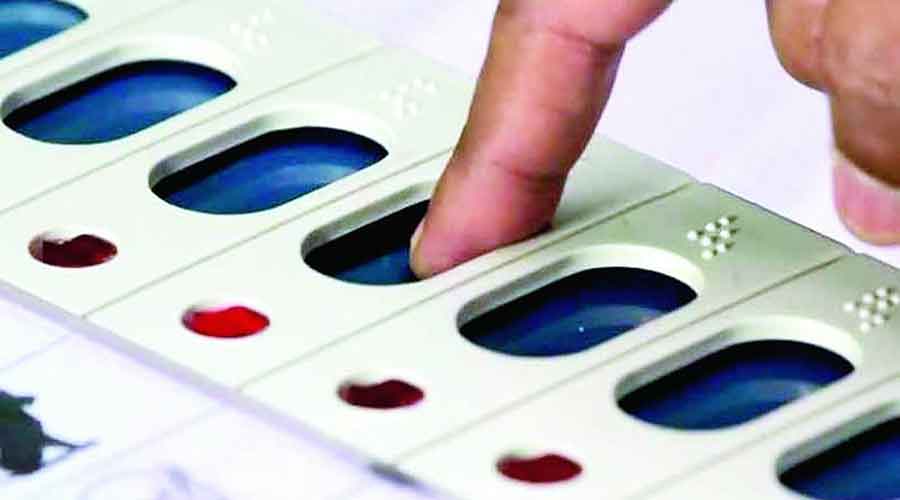The Congress on Thursday asked the Election Commission to restore trust in the electoral system, expressing serious concern about the suspicions that have risen under Narendra Modi’s rule.
Though the Congress has formally demanded a return to the ballot papers, replacing the electronic voting machines, passing a resolution to that effect a few years ago at an AICC session, the party stopped short of repeating that demand.
The implicit message, however, was lack of confidence in EVMs as well as the impartiality of the Election Commission.
There is a deep sense of disquiet about EVMs among large sections of the Congress and some leaders privately suggest a movement for the return of ballot papers soon after the completion of the Bharat Jodo Yatra.
The party expressed its concerns using the opportunity to convey its views to the Election Commission on the new proposal of introducing multi-constituency remote electronic voting machines for migrants.
The commission had asked political parties to submit their views by January 31, 2023. The parties have been invited to observe the functioning of the prototype multi-constituency EVMs on January 16.
Congress communications chief Jairam Ramesh issued a statement on remote voting, saying: “We call on the Election Commission to restore trust in the electoral system with transparency and via honest engagement with the Opposition’s concerns.”
He argued that trust in the electoral system is paramount for democracy to function and added: “The German Federal Constitutional Court struck down electronic voting machines in Germany in 2009 because the opacity of the machines cannot give a voter the confidence that his or her vote is being correctly recorded.”
Ramesh said: “In spite of their widespread use, EVMs have aroused much controversy in India. Unfortunately, fears of their misuse have not been systematically addressed. Voters and parties must have confidence in the electoral system. However, this trust has been repeatedly violated in recent years on account of pressures being put on the Election Commission of India by the Modi government.”
He added: “To cite only the most recent examples, the Election Commission delayed the announcement of the election schedule in Gujarat to give PM Modi more time for electioneering in his home state. It also gave him yet another free pass to violate the model code of conduct by allowing a road show on voting day in Gujarat. On issue after issue, our representations to the Election Commission result in no action.”
Recalling the experience in the last round of Assembly elections, Ramesh said: “In Gujarat this time we also saw suspicious voting numbers which showed that 10-12 per cent of voters cast their votes in the last hour of voting. This translates into an impossible 25-30 seconds being taken to cast each vote. You need a minimum of 60 seconds to cast a vote. Now imagine if these suspicious patterns can be extended via a multi-constituency voting machine to other locations. This would seriously undermine trust in the system.”
Ramesh pointed out that the Congress had made constructive suggestions in the past to increase confidence in the voting process by expanding the number of booths in which voter-verifiable paper audit trail (VVPAT) slips are counted. “However, this has also not been accepted,” he lamented.
Congress leaders argue that democracy entails respect for the majority opinion and over 95 per cent political parties in India have expressed their views against EVMs and strongly demanded a return to ballot papers. But neither the Election Commission nor the Supreme Court has responded to the apprehensions despite the sanctity of the electoral process being at the heart of democracy.











